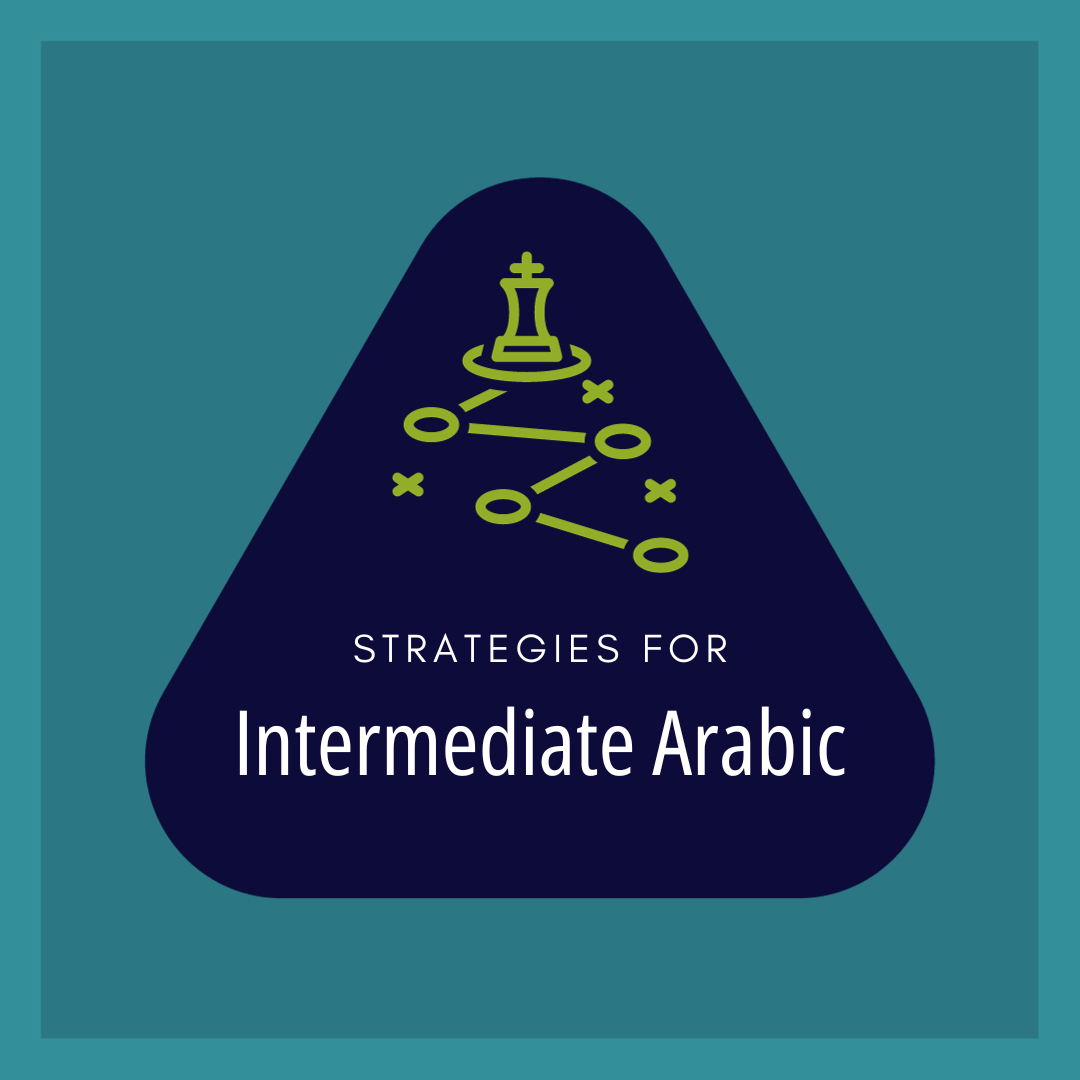Strategies for the Intermediate Phase
The following strategies are tailored for Arabic learners navigating the intricate terrain of intermediate Levantine Arabic. As the program director at the Shababeek Center for Intercultural Development, I’ve observed the challenges faced by hundreds of Arabic learners who reach phase four (at the moment we have ninety intermediate Arabic learners studying here in Amman, Jordan and online). Let’s delve into a detailed exploration of effective strategies designed to prevent the notorious intermediate plateau and ensure a smooth progression through this critical phase.
1. Daily Listening Practice:
Dedicate time each day to listening to audio recordings from previous phases, with a special focus on engaging stories. In the intermediate Arabic phase, you’re able to dive beyond surface comprehension, delving into sentence structures and patterns that may have been overlooked during initial exposure.
2. Interactive Listening with Text:
Elevate your language practice by revisiting old audio resources while simultaneously reading the written text. Transform this activity into an interactive experience by pausing to write down sentences from memory and cross-checking against the script. Shababeek has PDFs available specifically for this use.
3. Listening to Patterns of Speech:
Move beyond mere understanding of patterns of speech; actively incorporate them into your own speaking repertoire. Revisit worksheets from the previous phase to reinforce and solidify your grasp on these essential language elements.
4. Development Consultation and Plan (DCP):
Depart from traditional assessments and embrace a Development Consultation and Plan (DCP). Conduct this personalized assessment at both the beginning and end of phase four to receive targeted feedback and develop strategic plans for future language enhancement.
5. Reviewing Content:
Cultivate a habit of reviewing cultural and conversational content the following day. This includes jotting down key points to enhance your communicative competence and contribute to a deeper understanding of cultural nuances.
6. Shift from Words to Phrases:
Undergo a transformative shift in your language-learning mindset by focusing on entire thoughts, phrases, and sentences rather than fixating on individual words. Take your word log to the next level by converting it into a practical list of phrases for more effective language usage.
7. Increase Speaking Time:
Propel your language skills forward by increasing your speaking time during sessions. Engage in activities such as self-recording, feedback interviews, and story building. Embrace the goal of becoming an interesting and confident speaker as a hallmark of intermediate proficiency.
8. Notes on Topics from Conversations:
Actively participate in conversations with locals and take diligent notes on emerging topics. Utilize questions posed by Arabic speakers as prompts in your Arabic-learning sessions, enhancing your ability to navigate authentic communication.
9. Visual Descriptions:
Sharpen your spontaneous speaking skills by describing scenes from silent films or cartoons. This engaging activity not only highlights language gaps but also challenges you to improve your descriptive abilities on the spot.
10. New Nurturers and Cultural Insights:
Embrace fresh perspectives and broaden your cultural exposure by changing nurturers every 80-100 hours. Keep track of cultural insights in a systematic manner to deepen your understanding of the local culture.
11. Tracking Cultural Insights:
Document your cultural insights in a structured spreadsheet or journal. Consider sharing these insights with fellow learners to create a collaborative learning environment, enriching everyone’s Arabic-learning experience.
12. Regular Coaching Sessions:
Foster a strong connection with your Arabic-learning journey by scheduling regular coaching sessions. Use these sessions as opportunities to discuss progress, overcome challenges, and make necessary adjustments to ensure a steady and enjoyable advancement in proficiency.
Remember, a key aspect of language learning lies in its excitement and dynamism. Constantly adapt your strategy, keep the enthusiasm alive, and let’s work together to ensure you not only overcome challenges but also reach advanced proficiency.





